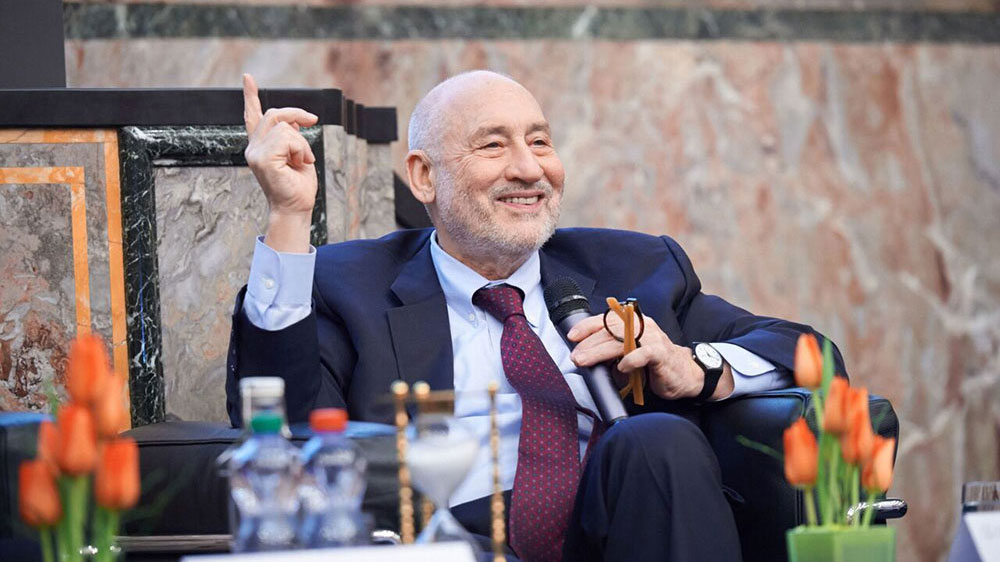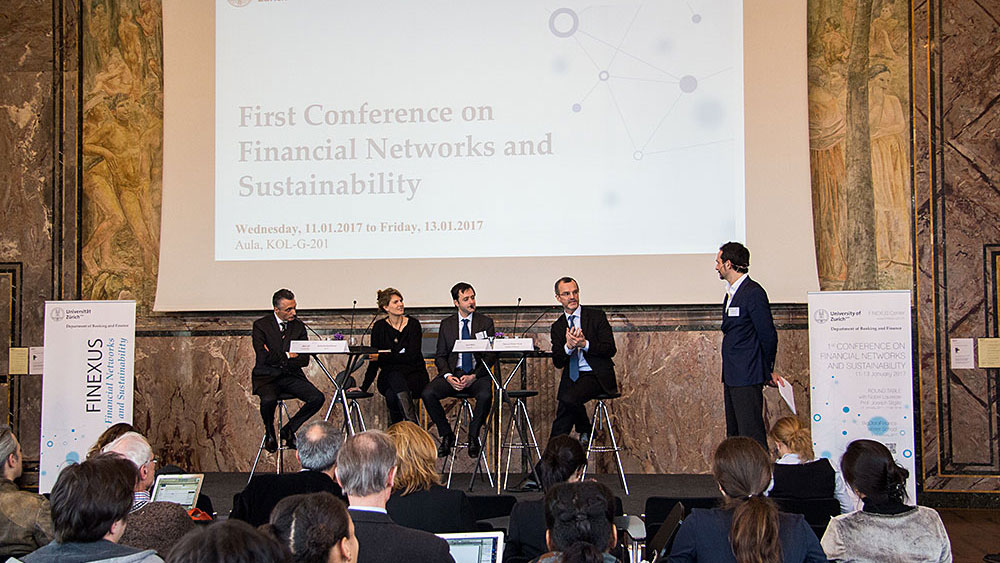Navigation auf uzh.ch
Navigation auf uzh.ch

The financial system is growing increasingly complex and intransparent. Who monitors and controls it? How can we make this network linking business, money and civil society more sustainable? These were some of the questions debated by the scientists and academics, political decisionmakers, and interested members of the public invited to the first conference staged by the FINEXUS Center for Financial Networks and Sustainability. Among other things, the conference called for universities to also take their share of the responsibility.
A podium discussion on Thursday asked what role civil society had to play in terms of the financial system and its sustainability. Marc Chesney, Professor of Quantitative Finance at the UZH Department of Banking and Finance, pointed out how finance is becoming increasingly remote from the real, socially-rooted economy, mentioning that “today’s derivatives amount to ten times GDP.” He said there was a financial casino that knowingly accepts systemic risks. To address these risks, Chesney is convinced that “we need to talk about values, not prices.”
Professor Stefano Battiston at the UZH Institute of Banking and Finance backed him up, claiming that “financial technologies such as credit default swaps (CDS) are neither good or bad; it’s how we use them.” Another significant problem described by Battiston is the overall complexity of finance, and the risks this poses for market participants with less knowledge of the subject.

Thierry Philipponnat from the Institut Friedland summed it up: “Finance is serving finance.” Jared Bibler, one of the leading investigators into the Icelandic banking crisis, called for tighter financial regulation, but at the same time admitted that not all economic actors are interested in more rules.
This, he said, is also a challenge in terms of research and scientific analysis, as existing economic models are unable to represent actors’ values and mentalities in all their complexity, as these things cannot be expressed in terms of mathematical variables.
Ultimately all the participants in the discussion agreed that teachers and researchers also had to take responsibility for promoting sustainable thinking among students and members of the public – not just in economic terms, but in environmental terms as well. Chesney summed up with a call to “put people at the heart of the economy.”
Thursday’s program ended with a public podium discussion that included the renowned economic expert and Nobel Laureate Joseph E. Stiglitz. The discussion revolved around the way the financial system, the environment, sustainability and social inequality are interconnected.
On Friday there were presentations by academics and researchers focusing on financial networks and the use of guidelines to achieve financial stability and sustainability.